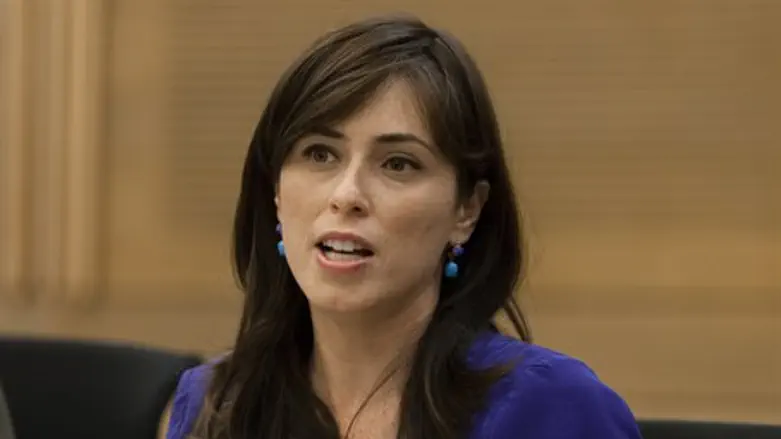
Academics at the Menachem Begin Heritage Center held a discussion yesterday about the academic boycott against Israel at the initiative of Professors for a Strong Israel.
During the hearing, experts called on Deputy Foreign Minister Tzipi Hotovely (Likud) to deepen public awareness of the legality of communities over the 1949 Armistice lines in Jerusalem, Judea and Samaria, as well as in the Golan Heights - efforts which have not been launched until now.
The speakers, Prof. Elisha Haas and Dr. Ronen Shoval, believe that Hotovely must formulate an organized legal argumentation regarding the legality of Jewish communities in Judea and Samaria.
Prof. Elisha Haas mentioned the case of Horizon 2020, a major project to fund scientific research. In 2014, Israel had objected to EU guidelines in the project banning funding and financial dealings with Jewish businesses and communities in Judea, Samaria and parts of Jerusalem, and requiring Israel to declare that those areas were not part of the State of Israel. The EU was accused of hypocrisy over the guidelines, with some Israeli officials and commentators pointing out that no such guidelines exist in relation to other disputed regions such as Turkish-occupied Cyprus and Moroccan-occupied Western Sahara.
The speakers at the conference noted that the diplomatic corps and the Israeli government refrained from including information on the subject of "illegal settlements" and explaining the situation.
The Levy Report of 2012 proved conclusively that the Jewish presence in Judea and Samaria is legal according to international law, but despite the report being commissioned by Prime Minister Binyamin Netanyahu's government it has yet to be adopted.
Academics are now demanding that Israel issue a formal response to EU bias on the issue.
Prof. Haas said, "Europe is crying out for scientific cooperation and yet they reject us, for what reason? Allegations of 'illegal settlements.' The Europeans have not heard that settlements in the Land of Israel are perfectly legal under international law, because Israel does not talk about it."
"So I turn to the Deputy Minister Hotovely: somewhere in the archives of the Foreign Ministry there is material explaining the legality of the 'settlements'," he added. "It's time for simple legal reasoning in terms of international law."
